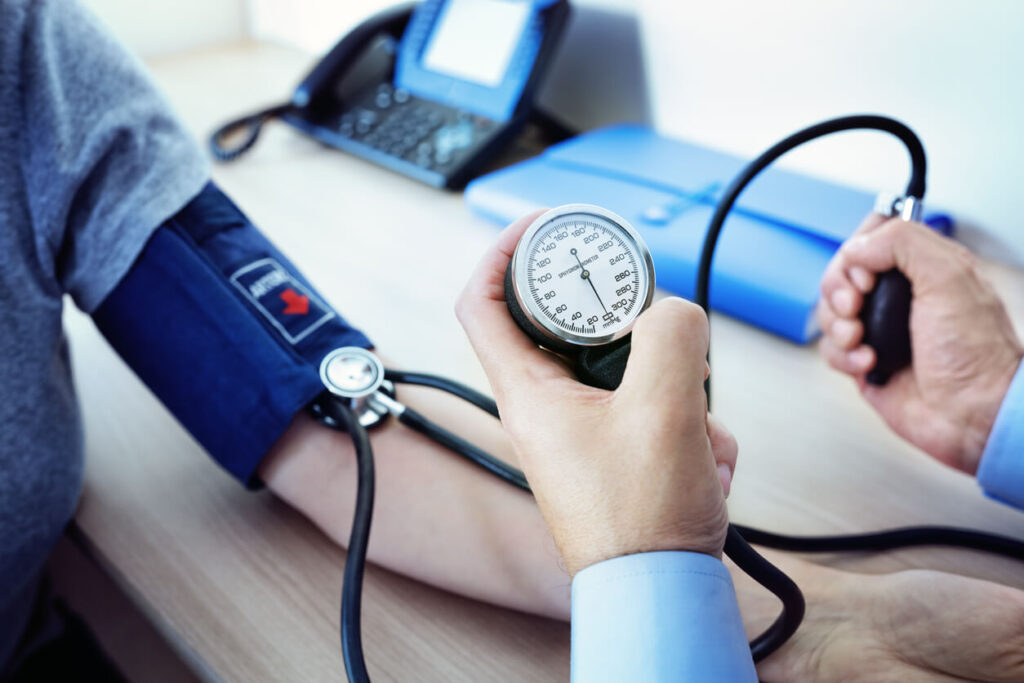If we think about a virus that attacks our lungs, then we need a good heart that works with how it responds to the body. Because COVID causes a systemic reaction, meaning that the disease can also attack a multiple of organ systems of the body, then patients that already have poor heart health.
The CDC came out with a report; Morbidity and Mortality Weekly Report dated February 12 to March 28 stating that 9% of Americans with COVID-19 also had some form cardiovascular disease. Half of Americans today suffer from high blood pressure. It is the most common form of cardiovascular disease. That means 108 million Americans afflicted with high blood pressure are living at risk for COVID-19.
Hypertension, or high blood pressure, happens when our vessels have an abnormality that constricts or impairs the way oxygen transfers to cells. When are lungs are being attacked, the ability to transfer oxygen is further compromised. That is why we are seeing patients that are being hospitalized having very low blood oxygen levels. Its not only the lungs that work in transferring oxygen, but the heart and our vessels that all work together to keep our oxygen levels at a vital rate.
The scariest thing about high blood pressure is that we can’t really feel it. Meaning it may not always come with symptoms that we can notice. The best way to identify it is to do a simple blood pressure reading.
The CDC published an infographic on how to monitor your blood pressure during the coronavirus crisis. During this pandemic, it is an important number to keep your eye on.
A digital blood pressure machine that can be purchased at a drug store with a blood pressure cuff is good to use for a reading. First, with a straight back, stay at rest in a chair for five minutes. Place your forearms on a flat surface like a table, and make sure the cuff is strapped above the elbow, right above where the elbow bends. Monitor your reading on a daily basis and write down your numbers in a place where you can easily access them.
Any blood pressure reading above 120 over 80 is considered elevated. 130 or higher for systolic is the first level of hypertension (the top number) and above 80 (the lower number) diastolic. Consult your physician for variations and numbers above 120 over 80.
So what can we do to address our blood pressure issues? What control do we have as Americans who are heavily afflicted with this disease? Well, we can start addressing our lifestyle choices. We can take steps towards a healthier lifestyle and we can also start by taking out blood pressure medication. Although it is true that high blood pressure can also be genetic, but there are also many external factors that do affect it greatly. We can take our blood pressure readings more often, and we can also try to manage our stress. If you find yourself with an unusually high blood pressure reading, the first thing you should do is try to relax. Remember, having high stress levels will only make it go up. We know how hard it is to manage our stress these days but higher stress levels raises our blood pressure. Do the best you can to practice breathing exercises, meditate, and listen to soft music. If you take your pressure reading again, you will most likely see it go down.

